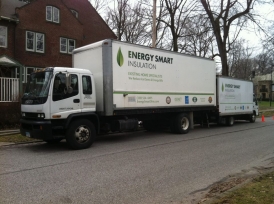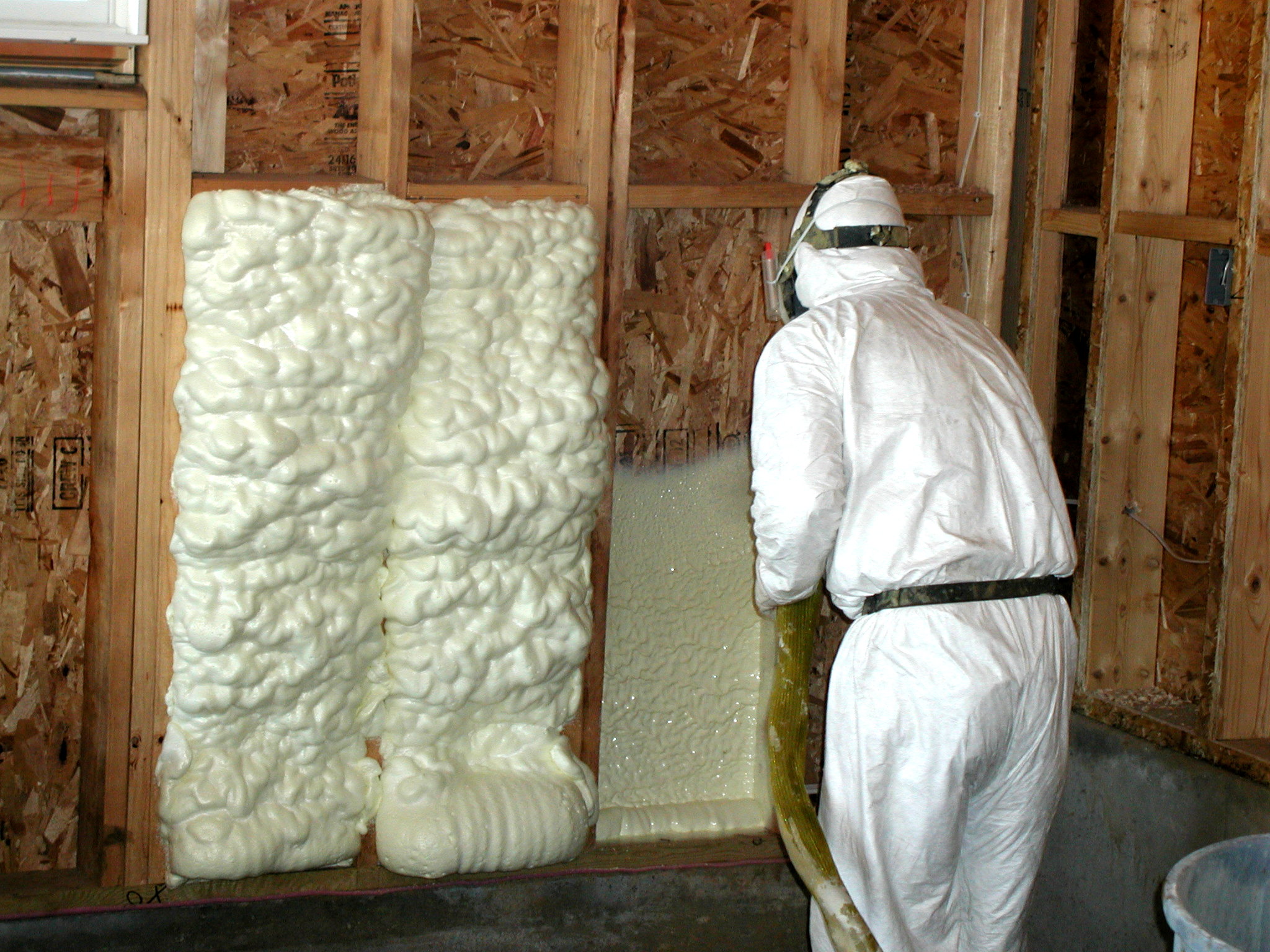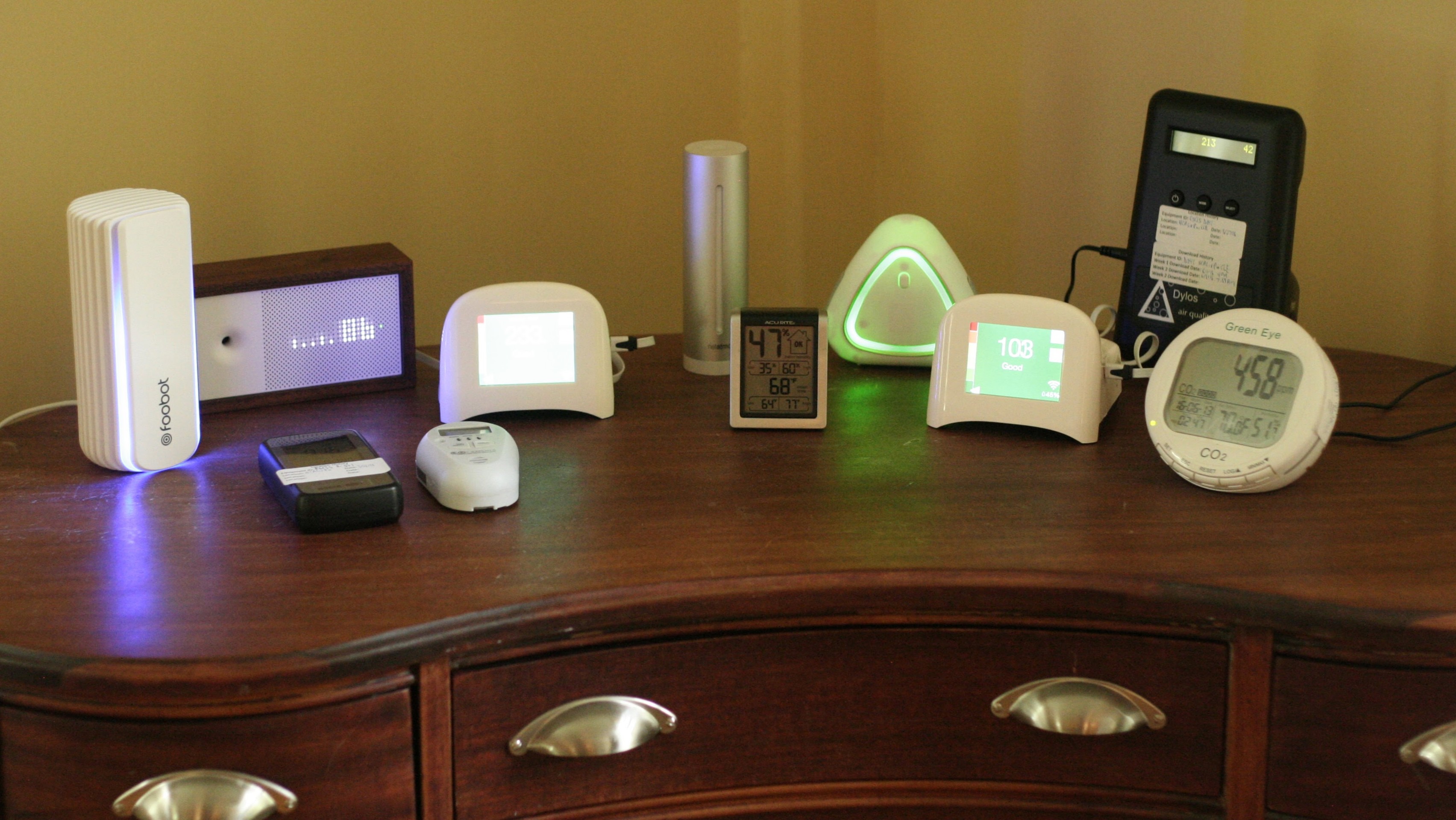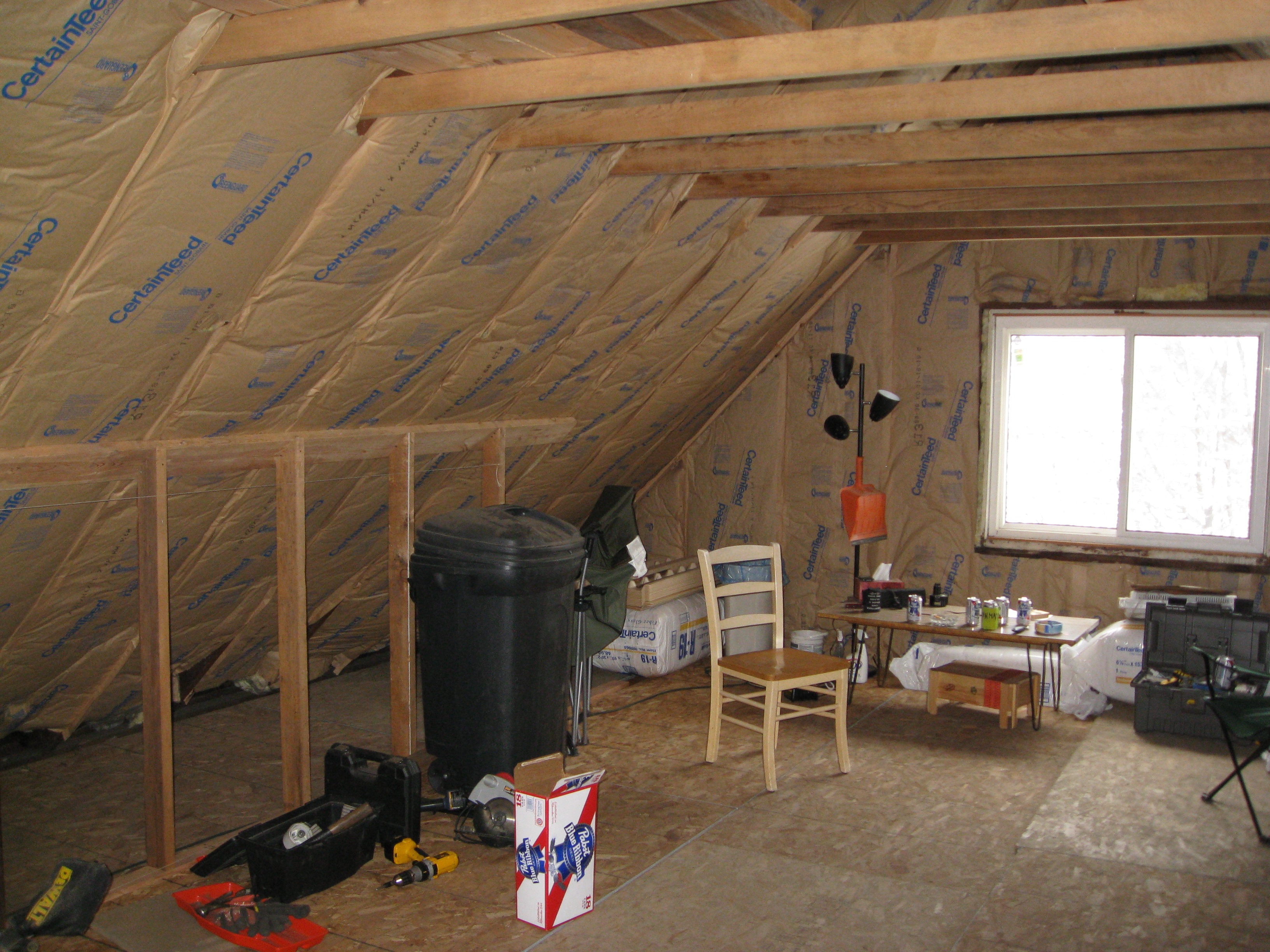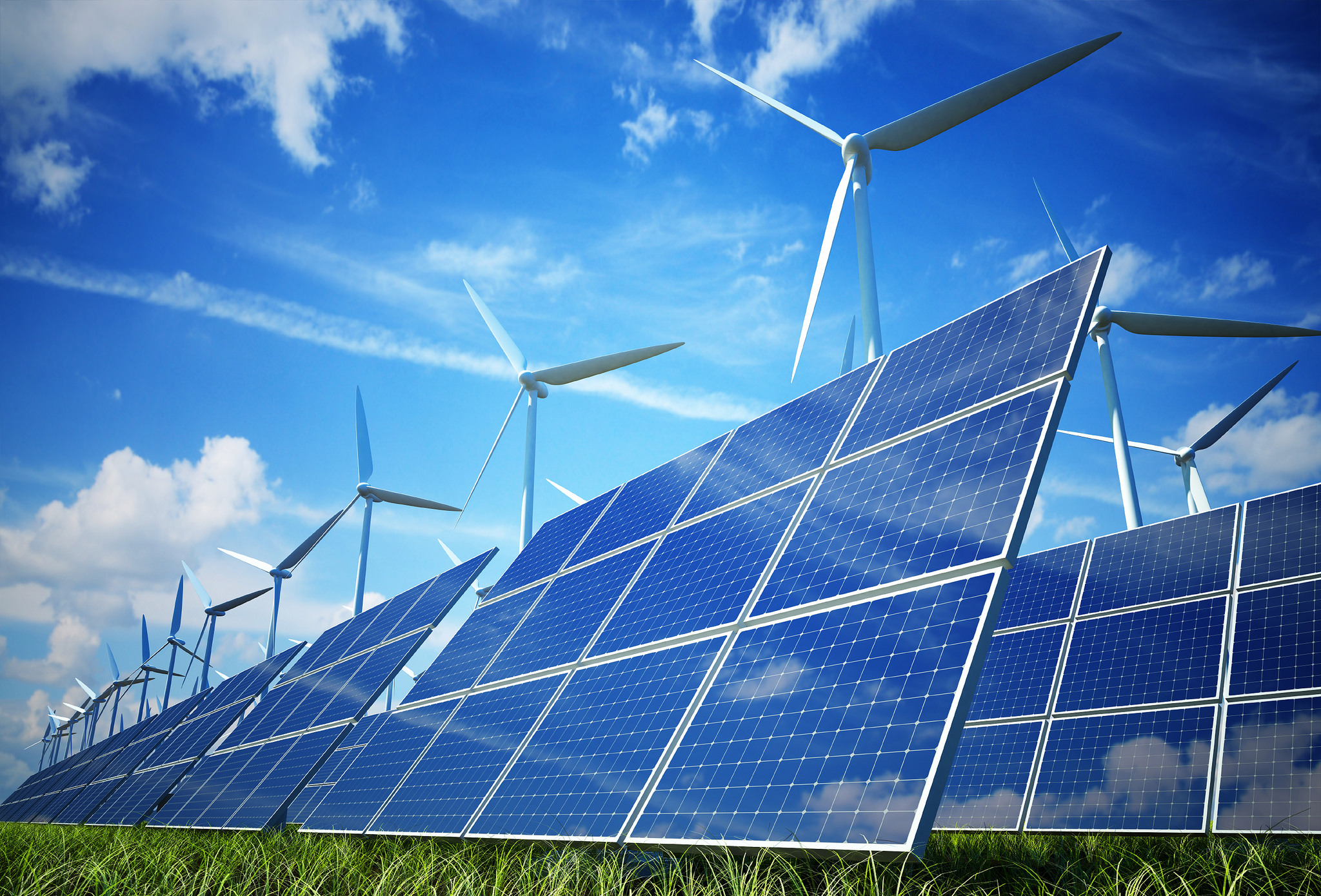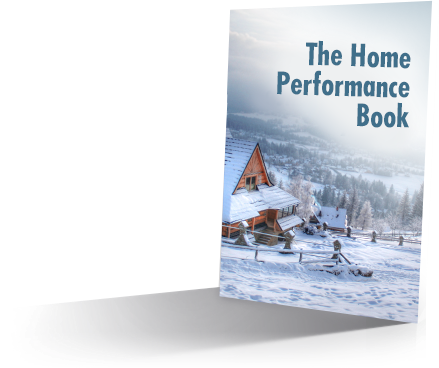What Is An Energy Audit And Why Do I Want One?
This is a question I answer all the time, since the gas company rebate program I work with requires an energy audit to get up to $1250 in rebates. First off, the IRS is NOT involved… They are also called home performance assessments or evaluations, but energy audit definitely gets the most hits on Google.
So what is an energy audit? There are 2 answers, one practical, and the other more scientific. Plus, in this article, you get a couple of my famous analogies. (OK, maybe not that famous yet, but they will be!)
The Practical Answer
An energy audit is a detailed look at the performance of your home, where the energy leaks are, and what needs to be done to fix the comfort, safety, and efficiency issues found. If you:
1. Have icicles.
2. Have an upstairs that is too hot in the summer and cold in the winter.
3. Have allergy problems that are worse at home than sitting in a hay loft.
4. Have another room that is always uncomfortable, like an addition.
5. Get lots of spiders in the basement.
6. Have AC or gas bills that seem high.
7. Get headaches at home a lot. (Not caused by children, that is.)
8. Are just curious what you can do to make your home more efficient.
You are a good candidate for an energy audit. Air leaks, old furnaces and air conditioners, lack of insulation, or high carbon monoxide levels could be the cause of these issues. An energy audit will give you a diagnosis of the root causes of these problems.
Another Way to Look At It

Have you ever bought a used car? (I have, the beauty above had 103,000 on it! Not my wife, the car!) Before you bought it, did you take it to your mechanic to get an honest, unvarnished opinion on it and see what might need to get fixed soon? An energy audit is kind of like that, only you own the house already.
Still Another Way to Look At It
Do you have a financial advisor? Are you planning on getting one someday? Part of their job initially is to look over what you have already – your house, 401K, CDs, cars, etc – and make recommendations of what to do in order to make the money go further and lead to a long retirement. An energy audit is a lot like that, too. It will take a look at what you have and make recommendations to improve your home’s comfort, health, and efficiency.
The Scientific Answer with the Nitty Gritty Technical Details
Touchy feely time is over. It’s time for SCIENCE! (As a geek, and a BPI Building Analyst, I love this part!)
Energy audits typically involve a few steps:
1. Questions for you: what temperature do you keep the house at, what comfort problems are you having, how many people live there, and so forth. This helps establish a baseline and let the auditor know what specific things he or she should be looking for to solve your problems.
2. Visual inspection for energy leaks – Search for leaking holes through your attic ceiling and in the basement, insulation levels, and much more.
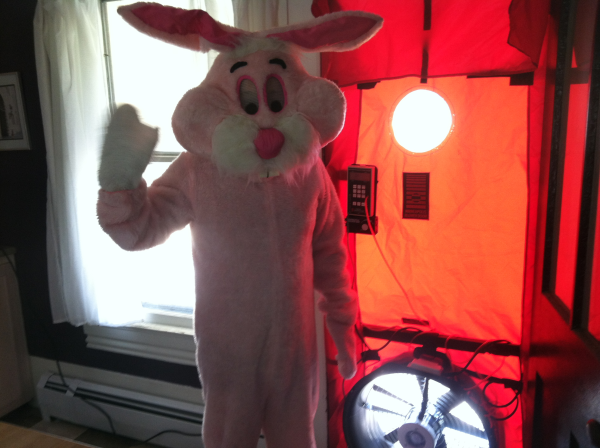
3. Blower door leakage measurement – A blower door is a big fan that gets fitted into your front door, the Easter Bunny above is showing one. (Hey, he only works a day a year and needed some cash, so we gave him a shot! He waves too much to be productive, though, so it didn’t work out.) Air leaks can make up a huge portion of your energy bill, as much as 40%! A blower door will give the specific amount of air your house leaks. I honestly don’t understand quite how it does it, I’m not that smart, but I do know they work and are quite accurate.
4. Search for air leaks with blower door. With the blower door running, your energy auditor will look around the house for the big air leaks. He may even seal a few of them. Many are in the attic and basement.
5. Infrared camera scan – An infrared camera can see heat and cold. It is a useful tool for finding spots that aren’t insulated or air leaks hidden behind walls. They need a decent indoor-outdoor temperature difference, so they work best on very hot and cold days, but skilled auditors can make it work almost any time.
6. Combustion Safety Testing – This is the part you never knew about, but can’t live without (sometimes literally).
a. Your furnace, water heater, and gas stove (if you have one) will be tested to see how well they are burning by measuring the carbon monoxide (CO) they are producing. 5-15 parts per million is pretty normal, over 25 is a bit high, and over 100 is a big deal. My accountant’s furnace was over 1000. He thanked me for potentially saving his family’s lives and recommending an audit.
b. Worst Case Draft Testing & Backdrafting – When you turn on your bathroom fans, kitchen vent fan, and dryer, that air has to come from somewhere to be pushed out by those fans. If everything is not working correctly, they may pull air down your chimney, possibly while the furnace or water heater is on. This is really bad news, and is called backdrafting. To find out if this can happen, your house is put in the ‘worst case draft’ scenario (which is crazy complicated, just pay the guy to do it!) to see if backdrafting is either likely or happening now. Your house will also be set up in a ‘natural’ scenario like you use it every day. If you backdraft in this scenario, you are in trouble and something needs to be changed.
7. The Report – Every auditor will give you a report making recommendations and usually giving you an order to tackle them in. Independent auditors usually don’t perform the work, so there is no pressure, it is just an honest, unvarnished opinion.
FAQs
Do I have to do everything the energy auditor suggests?
Absolutely not. They are in fact suggestions. You can do some this year and some next. Or nothing at all. (If nothing, why bother getting one, though?) That said, energy efficiency improvements are the only ones that pay for themselves in savings, and then help out your resale value – all while you don’t freeze in the winter, suffer allergies from nasty air sneaking in through air leaks, or deal with a significant other complaining about these issues.
How much is an energy audit?
A good energy audit will usually cost $400-600 depending on the time of year and the complexity of your home. If the audit is $200, they are probably going to try and sell you something, so be ready for it. An audit takes all day, between the on site part and the data entry, and requires about $10,000 in equipment, so they can’t be cheap if you are paying retail.
Are there any deals out there on energy audits?
YES! I’m glad you asked. Most utility companies offer low cost energy audits, typically for $50-100. Better yet, most come with rebate programs as well. Programs in Cleveland vary from $275-1250 in rebates. Here are some links:
Gas Utility Rebates – $50 audit, up to $1250 in rebates. Up to $400 off a new furnace, $40/hour for air or duct sealing, and $.30/square foot for insulation.
First Energy/Ohio Edison – $100 audit, up to $275 in air sealing and insulation rebates, $50/replacement window, $150 off a new AC, and $400 off a new heat pump (restrictions apply on all of these)
Not from Cleveland? Bummer. Just kidding, check Energy Savvy, they have you covered.
Hopefully that satisfies your yearning energy audit questions!
BIG NOTE:
I don’t actually do energy audits, even though I am a BPI Building Analyst (that is one major auditor certification), the utility companies do them WAAAY cheaper than I want to.
Instead, if you have interest, why not get a free evaluation from me or one of my staff where I will find most of the holes the full audit will, and you can find out what it will cost you, and then get an audit from a utility company? Just call 330-524-6495!

Whoa, buddy. Too much pressure! No problem, I still have something for you to click on!
PS The Easter Bunny can’t drive, either. Watch him clobber a garbage can. What a rube. I guess he should stick to giving out candy.
Get the HVAC Guide

It's free! Make buying a new furnace, air conditioner, or heat pump less stressful.



